What Modular Home Units are and aren’t
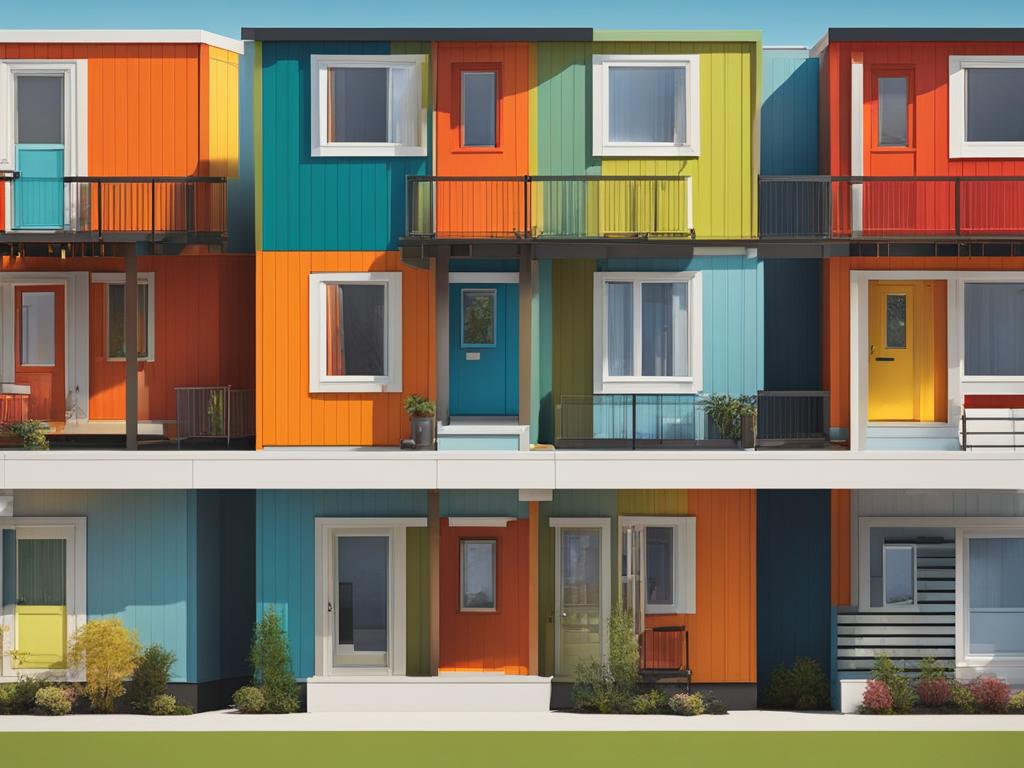
A modular home is a prefabricated structure that is built off-site and assembled on-site. It is different from a mobile home or RV as it is built on a permanent foundation, just like a traditional stick-built home. Modular homes are constructed in a climate-controlled factory and transported to the desired location, where they are assembled like building blocks. They follow local, state, and regional building codes, making them similar to stick-built homes in terms of quality and durability.
Modular homes are an affordable alternative to traditional homes and can be customized to meet the homeowner’s needs. They are not the same as prefab homes, which are completely constructed off-site and then transported to the final location. While prefab homes are also built in a factory, they are not assembled on-site like modular homes. Prefabricated houses, on the other hand, refer to any structure that is partially or fully built off-site, including both modular and prefab homes.
Modular construction offers numerous benefits, from cost savings to shorter construction timelines. In this article, we will explore the key features, energy efficiency, affordability, and considerations for buying a modular home. Whether you’re looking for your first home or a sustainable housing solution, modular homes provide an excellent option.
Key Takeaways:
- Modular homes are prefabricated structures that are built off-site and assembled on-site.
- They follow local, state, and regional building codes, ensuring quality and durability.
- Modular homes are an affordable alternative to traditional stick-built homes and can be customized.
- Modular homes are not the same as prefab homes, which are completely constructed off-site.
- Prefabricated houses include both modular and prefab homes, as well as other similar structures.
Key Features of Modular Homes
Modular homes offer several key features that make them a popular choice for homeowners. The design of a modular home can be customised to fit individual preferences, with various floor plans and customisation options available. With modular home design, homeowners have the flexibility to create a space that meets their specific needs and preferences. Whether it’s an open-concept layout, a spacious kitchen, or a luxurious bathroom, modular homes can be tailored to suit any lifestyle.
Modular home builders play a crucial role in bringing these designs to life. Reputable modular home builders have the expertise and experience to ensure that the construction process is seamless and of high quality. They work closely with homeowners to execute the agreed-upon design and ensure that their vision becomes a reality.
Furthermore, modular homes are not just limited to construction—they are also available for sale. This provides homeowners with an affordable option to own a home that is built to their specifications. Many modular homes for sale come with attractive features and amenities, such as energy-efficient windows, modern finishes, and upgraded appliances, ensuring that homeowners can enjoy the same level of comfort and convenience as traditional stick-built homes.
Customisation Options
When it comes to modular home design, the options are endless. Homeowners can choose from a variety of floor plans and layouts that meet their unique needs. Whether it’s a small and cosy home or a large and spacious one, modular homes can be customised to fit any size or style. From the number of bedrooms and bathrooms to the placement of windows and doors, every detail can be customised to create the perfect home.
Modular homes can also be personalised with various finishes and features. Homeowners have the freedom to choose the type of flooring, kitchen cabinets, countertops, and more. This allows them to add their personal touch and create a space that truly reflects their taste and lifestyle.
Quality Construction
Modular homes are built with the same level of quality and durability as traditional stick-built homes. The construction process takes place in a controlled environment, ensuring precision and attention to detail. Skilled craftsmen use high-quality materials to assemble the modules, ensuring structural integrity and longevity.
Additionally, modular homes undergo rigorous inspections at every stage of the construction process to ensure compliance with local building codes and industry standards. This attention to detail and quality control measures guarantee that homeowners receive a home that is built to last.
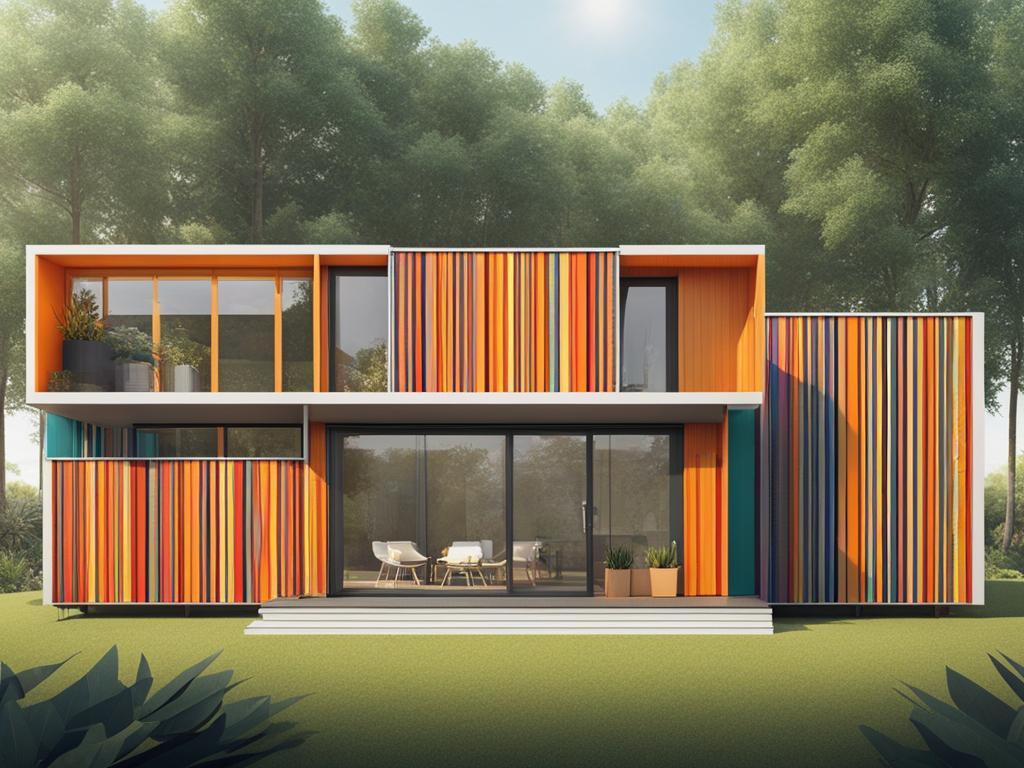
Energy Efficiency and Sustainability of Modular Homes
Modular homes are known for their energy efficiency and commitment to sustainable housing. The construction process of modular homes takes place in a controlled factory environment, ensuring precise measurements and tight seams for improved insulation. This results in reduced energy consumption and lower heating and cooling bills for homeowners.
Modular homes can be customised to incorporate sustainable features, further enhancing their energy efficiency. For instance, solar panels can be seamlessly integrated into the roof, harnessing renewable energy to power the home. Energy-efficient appliances can also be installed, reducing electricity usage and promoting eco-conscious living.
By adopting energy-efficient practices and sustainable solutions, modular homes contribute to the reduction of carbon emissions and the conservation of natural resources. Homeowners can take pride in knowing that their energy-efficient home not only benefits them financially but also positively impacts the environment.
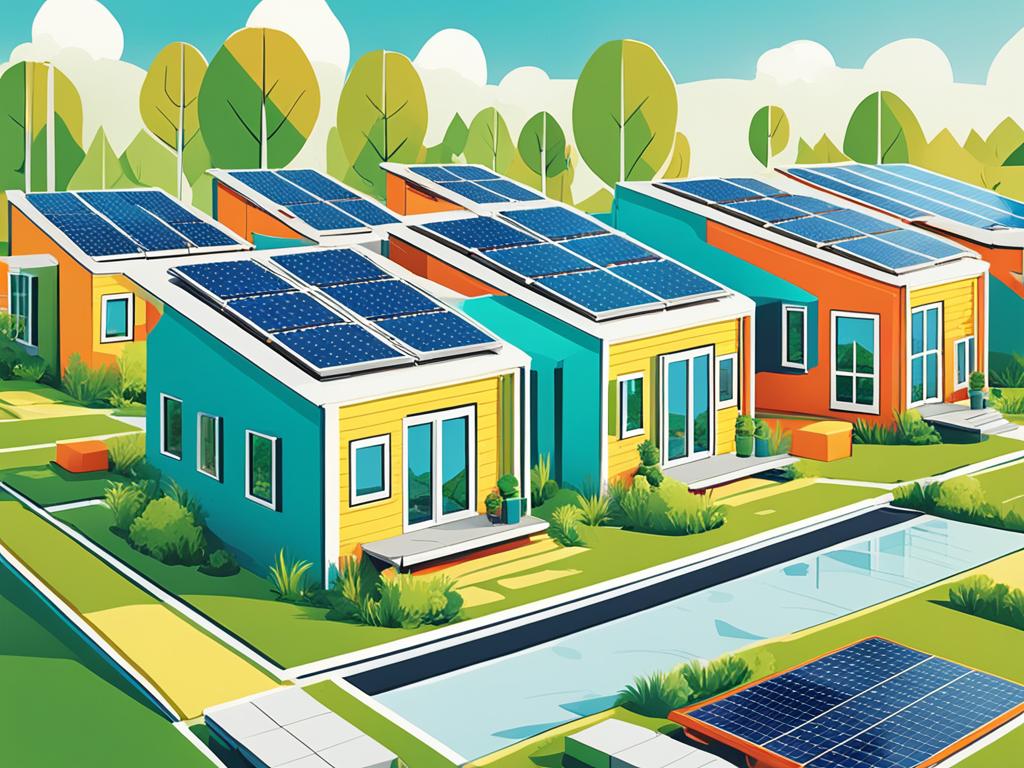
Benefits of Energy-Efficient Homes
- Lower energy consumption leads to reduced utility bills
- Improved insulation provides a comfortable living environment
- Sustainable features reduce the carbon footprint
- Renewable energy integration decreases dependence on fossil fuels
- Promotes eco-conscious and environmentally friendly living
Investing in an energy-efficient and sustainable modular home not only benefits homeowners financially but also contributes to a greener future for the planet.
Affordability of Modular Homes
One of the main advantages of modular homes is their affordability. Building a modular home is generally more cost-effective compared to traditional stick-built homes. The cost of a modular home is typically £100 to £200 per square foot, excluding the cost of land and additional fees.
For example, a 1,800-square-foot modular home can cost between £180,000 and £360,000, depending on customization and finishes. This makes modular homes a viable option for individuals and families looking to own a home within their budget.
Modular homes offer a range of customization options, allowing homeowners to tailor their homes to their specific needs and preferences. By choosing modular homes, individuals and families can enjoy the benefits of homeownership at a more affordable price.
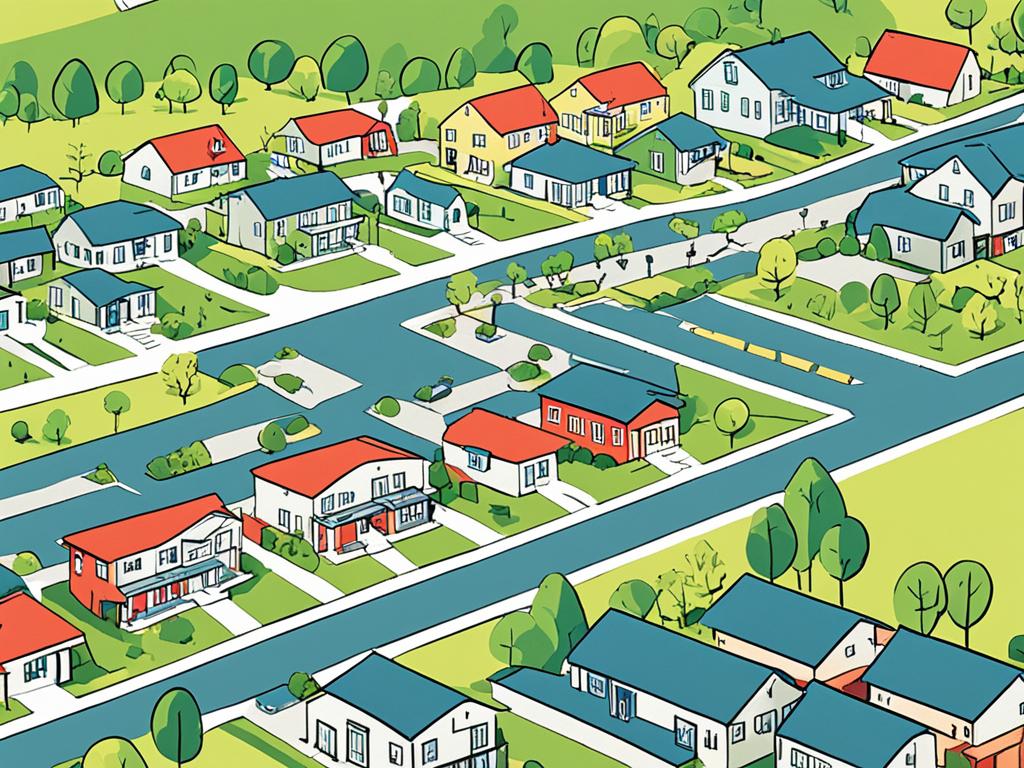
Whether it’s a cozy cottage or a spacious family home, modular homes provide a range of housing solutions to suit different budgets and lifestyles. With their cost-effectiveness and customization options, modular homes continue to be a popular choice for those in search of their dream home.
Considerations for Buying a Modular Home
When purchasing a modular home, it’s important to consider several key factors to ensure a smooth and successful experience. Here are some essential considerations to keep in mind:
- Find a reputable modular home builder: Choosing a reliable and experienced modular home builder is crucial. Look for builders who have a proven track record of delivering high-quality modular homes that meet your requirements.
- Customization options: While modular homes offer a range of customizable floor plans, it’s important to be aware of any limitations. Consider your specific design preferences and choose a modular home design that aligns with your needs.
- Available land: Ensure that you have suitable land available to place your modular home. Check if the land complies with zoning regulations and has the necessary utilities and infrastructure in place.
- Inspection: Before finalizing the purchase, it’s highly recommended to thoroughly inspect the modular home. This will help identify any potential issues and ensure that the home meets your quality standards.
By keeping these considerations in mind, you can make an informed decision and ensure that your modular home buying process goes smoothly. Working with reputable modular home builders, considering customization options, verifying land suitability, and conducting a thorough inspection will help you find the perfect modular home that meets your needs and preferences.
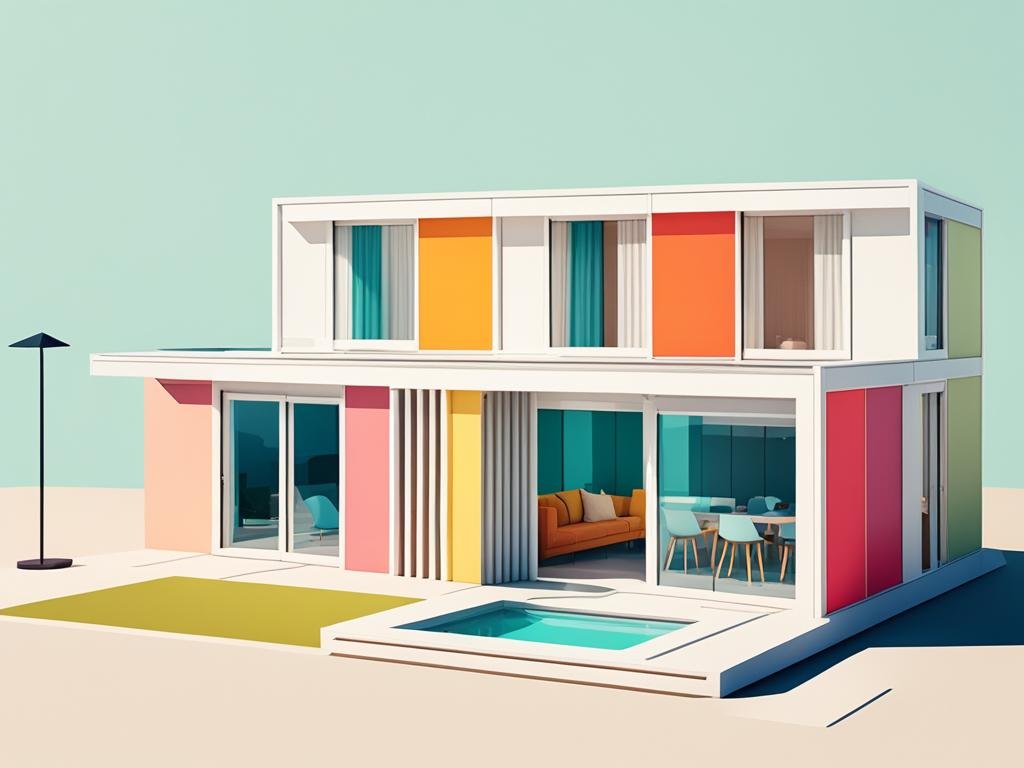
Modular Homes vs. Stick-Built Homes
Modular homes and stick-built homes are often compared when it comes to choosing the perfect home. While both options have their advantages and considerations, it’s important to understand the key differences between these two construction methods.
Modular homes, as we discussed earlier, are constructed off-site in a factory-controlled environment. This method offers several advantages, including shorter construction timelines and reduced chances of weather-related delays. The modular construction process allows for tighter construction and better insulation, potentially leading to improved energy efficiency and lower utility costs. In fact, modular homes are known for their energy-efficient features, making them a sustainable and environmentally friendly choice.
On the other hand, stick-built homes are constructed on-site, piece by piece, by skilled craftsmen. This traditional method offers greater flexibility in terms of customization and design options. With a stick-built home, homeowners have the freedom to make changes and modifications as desired, ensuring that the final result meets their specific requirements.
When it comes to choosing between a modular home and a stick-built home, it ultimately depends on individual preferences and budget. If you value efficiency, faster construction timelines, and potential energy savings, a modular home may be the right choice for you. However, if you prioritize customization and design flexibility, a stick-built home might be the better option.
Before making a decision, it’s essential to carefully consider your lifestyle, needs, and budget. Additionally, consulting with reputable modular home builders and stick-built home contractors can provide valuable insights and guidance in making an informed choice.
To help you visualize the differences between modular homes and stick-built homes, below is an image illustrating the two construction methods:
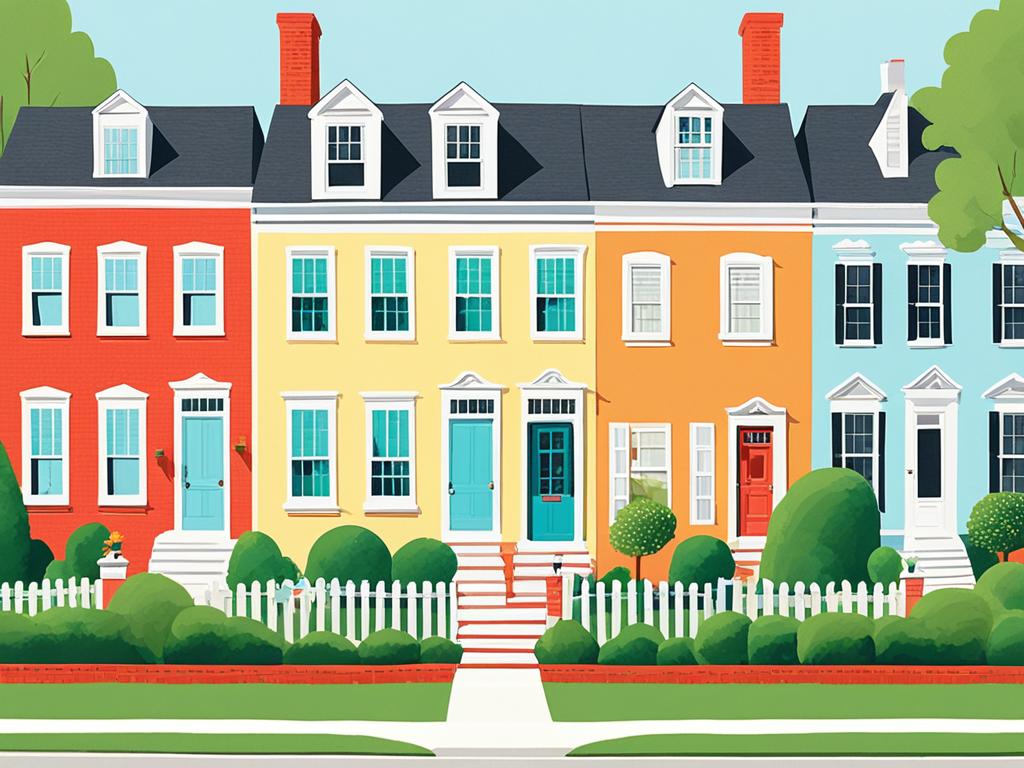
As you can see, both modular homes and stick-built homes have their unique advantages and considerations. Understanding these differences will help you make a well-informed decision when choosing the right home for you and your family.
Conclusion
Modular homes are gaining popularity as an affordable and customizable housing solution for individuals and families in the United Kingdom. These prefab homes offer energy efficiency, sustainability, and the ability to be placed on a permanent foundation, just like traditional homes. With reputable modular home builders and a range of options for modular home design, homeowners can create their dream home while staying within their budget.
Modular construction provides several benefits compared to stick-built homes. The controlled factory environment ensures tighter construction and insulation, resulting in energy-efficient homes that help reduce heating and cooling costs. Additionally, modular homes can incorporate sustainable features, promoting eco-friendly living and sustainable housing practices.
When considering a modular home, it’s important to find reputable modular home builders who can provide quality construction. Homeowners should also ensure they have suitable land available and comply with zoning regulations. By choosing a modular home, individuals and families can enjoy the benefits of customizable and affordable housing, while also embracing energy efficiency and sustainable living.
FAQ
What are modular home units?
Modular home units are prefabricated structures that are built off-site and assembled on-site. They are different from mobile homes or RVs as they are built on a permanent foundation, just like traditional stick-built homes.
What are the key features of modular homes?
Modular homes offer customizable designs, with various floor plans and customization options available. They are built by reputable modular home builders and can be purchased as ready-made units. Modular homes provide the same comfort and amenities as traditional stick-built homes when properly customized.
How energy-efficient and sustainable are modular homes?
Due to their construction process in a controlled factory environment, modular homes have tighter seams and construction, leading to improved insulation and reduced energy consumption. They can also be designed to incorporate sustainable features, such as solar panels and energy-efficient appliances, promoting sustainable living.
Are modular homes affordable?
Building a modular home is generally more cost-effective compared to traditional stick-built homes. The cost of a modular home is typically 0 to 0 per square foot, excluding land and additional fees. This makes modular homes a viable option for homeowners on a budget.
What should I consider when buying a modular home?
It’s important to find a reputable modular home builder who can meet your requirements. Customization options for the floor plan may have limitations, so choose a design that suits your needs. Ensure you have suitable land available and that it complies with zoning regulations. Inspecting the modular home before purchasing is also recommended.
What is the difference between modular homes and stick-built homes?
While modular homes are assembled on-site, their construction process takes place in a factory, resulting in advantages such as shorter construction timelines and reduced weather-related delays. However, stick-built homes offer greater flexibility in customization and design options.
Why should I consider modular homes?
Modular homes provide an affordable and customizable housing solution. They offer energy efficiency, sustainability, and the ability to be placed on a permanent foundation. Modular homes are a viable alternative to traditional stick-built homes, allowing homeowners to create their dream home within their budget.

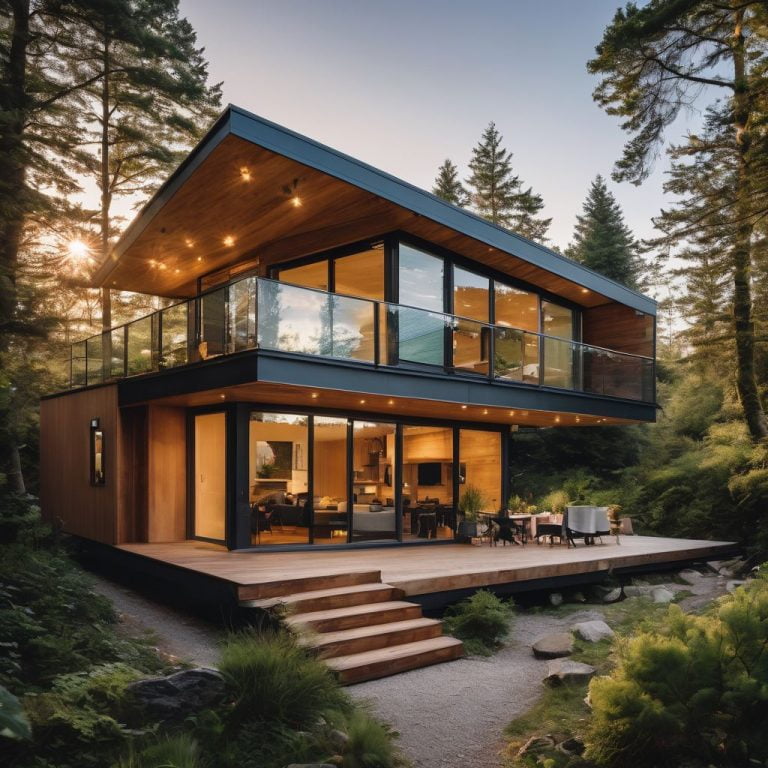
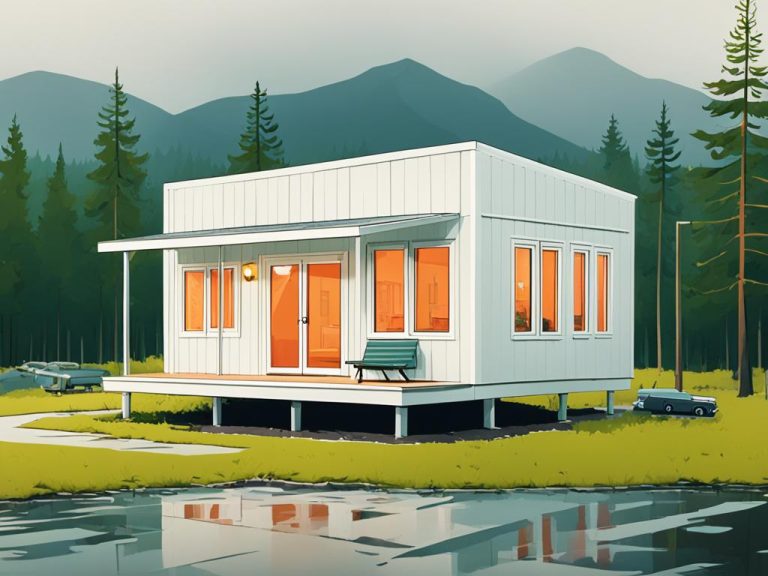
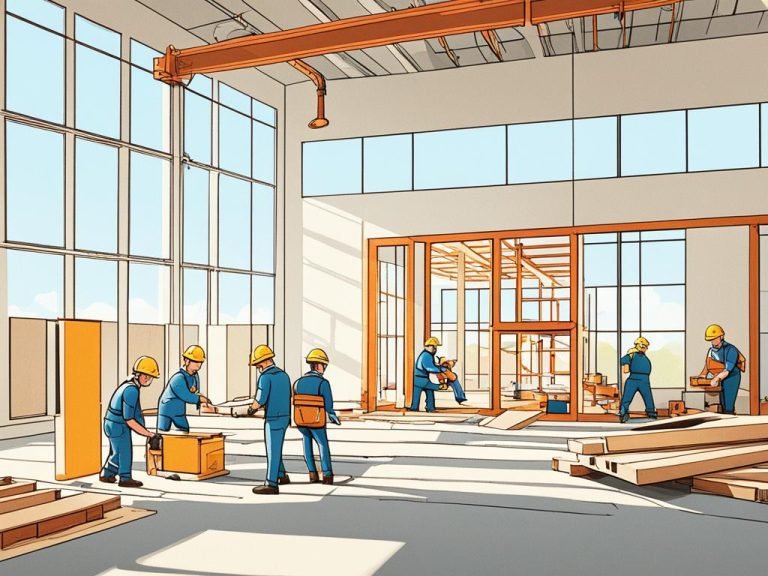
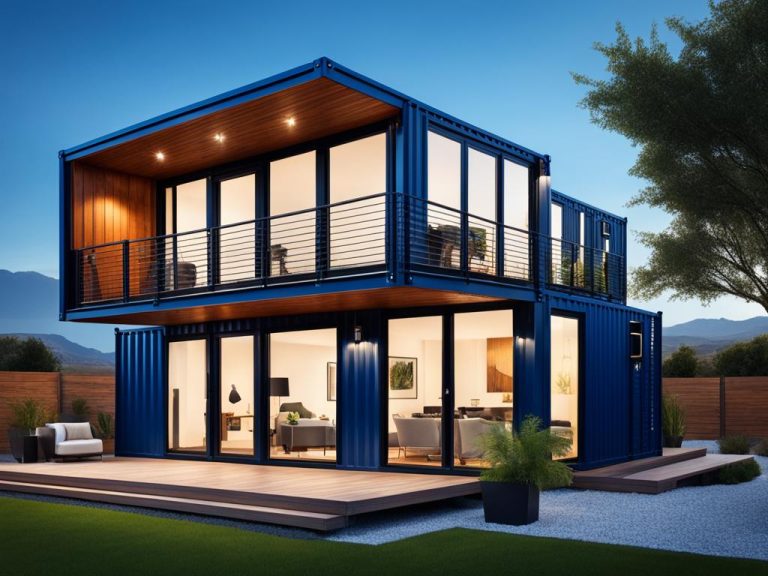
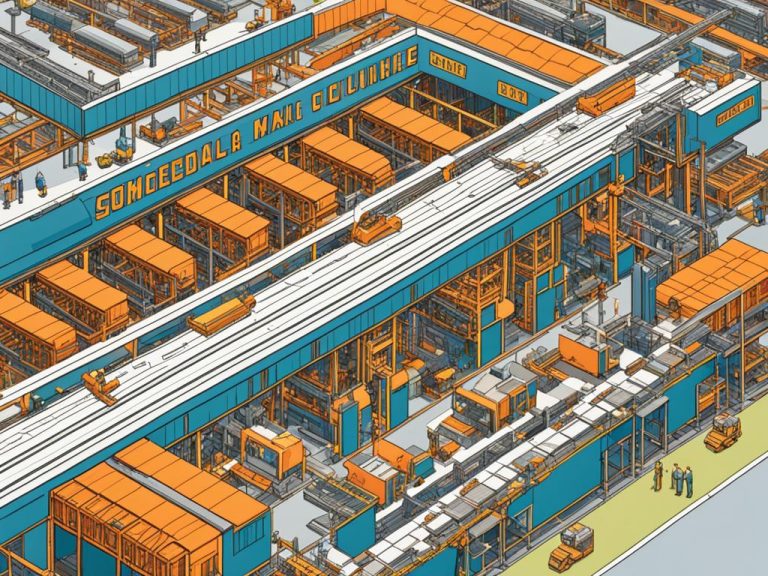
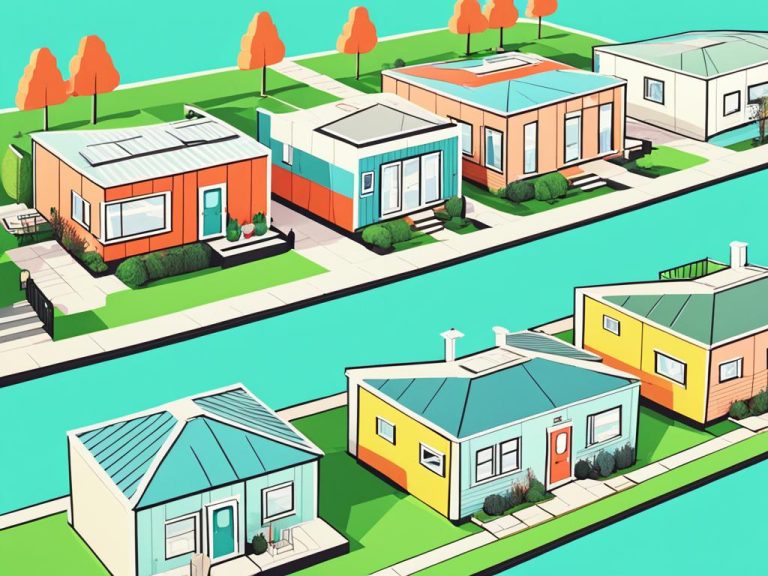
I don’t think the title of your article matches the content lol. Just kidding, mainly because I had some doubts after reading the article.